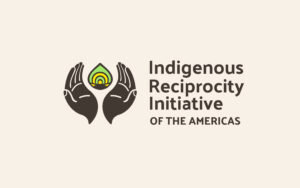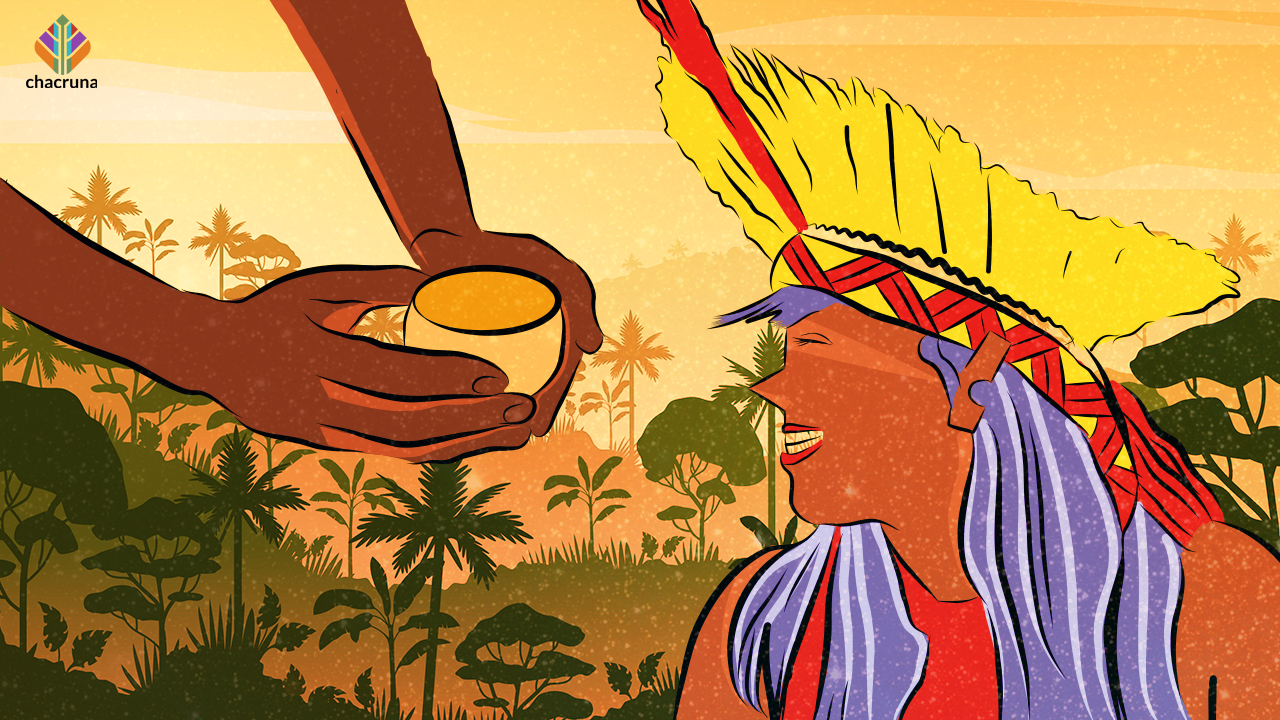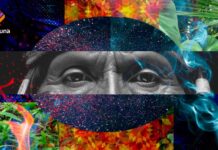- (Re)imagining Healing: Lessons from Indigenous Wisdom - October 23, 2024
The Illusion of Self-Improvement
Have you ever considered that your constant preoccupation with self-improvement, personal healing, and addressing childhood trauma might actually be the cause of feeling stuck in your own cycle of distress? Have you ever thought that outward factors, such as community and environment, may play an equally significant, if not more critical, role in shaping your well-being? The neoliberal, hyper-individualized paradigm often feeds on our insecurities and self-absorption, suggesting that something is inherently wrong with us and that we must continually “do the work” to fix ourselves. However, if we were to let go of this notion and instead focus more on contributing to our communities, we might realize that our mental health and well-being are just as much influenced by external engagement as by internal introspection.
Integrating Indigenous Wisdom
In this paper, I aim to address these questions by drawing on Indigenous wisdom and exploring how integrating their teachings into our lives and health systems can offer a more holistic and interconnected approach to healing, challenging the dominant model. Indigenous perspectives highlight the importance of community, culture, and environmental relationships in well-being, advocating for a model of healing that transcends individualism and emphasizes interconnectedness. Through this exploration, I seek to understand how traditional knowledge systems can inform and enhance contemporary mental health practices, ultimately fostering a more inclusive and sustainable approach to healing.
I seek to understand how traditional knowledge systems can inform and enhance contemporary mental health practices, ultimately fostering a more inclusive and sustainable approach to healing.
The Promise of Psychedelics in Modern Medicine
Nowadays, there is growing enthusiasm about the potential of psychedelics and plant medicine in treating various psychiatric conditions, including mood disorders. Research centers around the world are exploring how these substances affect the brain. For instance, Palhano-Fontes et al. (2019) claim that “recent open-label trials show that psychedelics, such as ayahuasca and psilocybin, hold promise as fast-onset antidepressants in treatment-resistant patients.” Given our current mental health crisis and the clear limitations of the pharmacological model as a viable long-term solution, the enthusiasm for these substances is justifiable. Prescription drugs do not offer immediate relief, and if they do alleviate pain, they often come with numerous side effects. Moreover, this pharmacological model approaches human suffering from a reductionist perspective—you are not well because of “certain deficits in brain metabolism, such as neurotransmitter deficiencies of serotonin, norepinephrine, and dopamine” (Scheidegger, 2021, p. 174). Thus, the solution is thought to lie in the form of a prescription that alters your neurochemistry, promising that you’ll feel better in a few weeks.
The Commodification of Plant Medicine
The use of psychoactive compounds is common in both scientific and traditional mental health treatments. In biomedicine, mental disorders are considered biochemical imbalances that psychoactive drugs can correct. Amazonian medicine, on the other hand, perceives mental health issues as influenced by spiritual forces and uses psychoactive plants to align individuals with the surrounding spiritual world, including an alignment between the individual, the community, the ecosystem, and even the geographical territory (Bouso & Sánchez-Avilés, 2020). However, while psychoactive substances are being considered an alternative, their commodification, medicalization, and integration into our health system follow the same pharmacological treatment model. Sacred plants used for centuries by Indigenous peoples are starting to be decontextualized and reduced to symptom alleviation and individual betterment. This goes hand in hand with increased responsibility on the individual for “doing the work” to address traumatic wounds, which can lead to more self-absorption and disconnection from others, as well as the belief that individual healing is the best thing you can do to change the world. If you’re still not well, the mainstream conclusion is that you probably aren’t still done with “doing your work.”

Discover the Indigenous Reciprocity Initiative of the Americas
Beyond the Individual: A Collective Perspective
In the hands of capitalism, plant medicine is becoming commodified and commercialized, turning into another self-improvement tool and a means for quick profit. Looking back at my own psychedelic journeys, I cannot deny the immediate relief in mood and affect I experienced afterward. However, my enthusiasm for these substances goes beyond the self-improvement paradigm. I share Falcon’s (2020) belief that “psychedelic experiences and altered states of consciousness can potentially serve as decolonial tools for designing consciousness and thereby assist in reorienting human social and environmental relations toward ontologies of relatedness and interconnectedness.”
Beyond healing and betterment in individual productivity, altered states of consciousness can reveal the ways in which colonial power and patriarchy are still embedded in our minds, our ways of being, our language, our assessment of legitimate knowledge, and our research methods. They have empowered me to think beyond capitalist healing modalities and revolutionized the way I relate to community, to the people in my life, to politics, and to the natural environment. They’ve been illuminating in making me realize that most of the times I suffered the most, the cause was rooted in alienation and isolation from others and hyper-fixation on personal problems rather than insufficient time spent addressing individual problems. In other words, the most hopeful aspect of psychedelic tools is their potential to reframe our values and ethical commitments away from egocentric absorption and towards love and acceptance of others and ourselves. In this regard, the wisdom of Indigenous peoples can serve as a great source of inspiration since their lives are in much better alignment with one another, with their community, and with the ecosystem. Their modes of being reflect a good understanding of the indispensable connection between individual and communal health.
The Potential of Psychedelic Tools
“The mindbody states provoked by the classic psychedelics allow people to see their responsibilities, actions, and inactions in a wider context and help to shift values from those that are self-centered to those that center more on a group, society, humanity, and even the cosmos” (Falcon, 2020). Therefore, by integrating Indigenous wisdom with psychedelic practices, we can move towards a more holistic and interconnected approach to healing, challenging the neoliberal model. I used to believe mental health was the result of hard work in the chair at the psychotherapist’s office, good nutrition, and exercise. It is true that our emotional health and the quality of our lives are grounded in physiology and neurobiology, but these are just a puzzle of the whole picture. The more I learn about traditional uses of plant medicine, the more my health paradigm shifts towards a holistic approach to mental health and well-being. Rather than obsessing about optimizing our brain chemistry, we need to engage in matters of culture, ethics, social justice, community, politics, and our relationship to the natural environment. Individual health is intrinsically linked to cultural, political, and environmental health, and for learning how to practically engage with this idea in a respectful and honoring way of traditional master plants, we can redirect our attention to Amazonian curanderismo.
By integrating Indigenous wisdom with psychedelic practices, we can move towards a more holistic and interconnected approach to healing, challenging the neoliberal model.
Curanderismo: Healing Beyond the Individual
Curanderismo, a traditional set of practices that has been uniting people worldwide under the common goal of healing, can be illuminating in understanding that health extends well beyond individual well-being and must include forgiveness and accountability for the cultural and social traumas of the past (Aronovich & Labate, 2021). The authors of the article share a perspective that surpasses the biomedical paradigm and discuss how Indigenous wisdom and psychedelic practices can challenge the neoliberal, hyper-individualized model by emphasizing the importance of community, culture, and the environment in our well-being. This approach resonates with Falcon’s (2020) decolonial imperative to make “a world in which many worlds fit” and the creation of an inclusive and effective paradigm of healing. For Soi, a Shipibo Onaya working at Temple of the Way of Light, a healing center in the Peruvian Amazon offering Ayahuasca retreats, “to be healthy, one must know how to live in harmony and reciprocity with other people and with our environment as a whole” (Aronovich & Labate, 2021). Soi shares that Oni, the Shipibo name for Ayahuasca, translates to “knowledge,” and historically, people relied entirely on this sacred plant since there were no hospitals or health centers in their communities.
The Temple where Soi works has been modernized to accommodate the influx of Westerners seeking healing, but he sees this as an opportunity to bridge tradition and modernity. He advises those seeking healing with Oni to go slow, emphasizing that growth with this plant medicine does not happen overnight. One must prepare for the experience and stay open to the power of the Icaros. Soi confirms witnessing many miraculous healing stories from those who come to the retreat (Aronovich & Labate, 2021). Nevertheless, despite the growing interest in Ayahuasca, the recognition of traditional medicines and healers remains marginalized within the Global Mental Health agenda and in policy and human rights frameworks (Bouso & Sánchez-Avilés, 2020, p.145).
Indigenous epistemologies should be carefully respected and considered legitimate knowledge systems, and it is essential to ensure that Indigenous peoples are equal participants in research, conferences, and dialogues.
Practical Applications
Grounded in the idea that individual health cannot be separated from the health of the community, it is vital to embrace broader perspectives of health globally. This approach can lead to a more inclusive and effective paradigm of healing. Since science encompasses both natural and social sciences, ethnographic research may offer a more reliable and feasible option than biomedicine for evaluating traditional medicines involving psychoactive plants (Bouso & Sánchez-Avilés, 2020). Research budgets should be allocated for multidisciplinary approaches to study non-institutionalized traditional medicines, such as ayahuasca healing systems. Similarly, Indigenous epistemologies should be carefully respected and considered legitimate knowledge systems, and it is essential to ensure that Indigenous peoples are equal participants in research, conferences, and dialogues. We must ask them what they need and how we can contribute, allowing them to speak for themselves rather than having Westerners make assumptions and decisions on their behalf. Local communities and Indigenous peoples worldwide should participate in a global intercultural dialogue for scientific progress, as their inputs are invaluable, and science should not be used as an instrument of cultural imposition.
Art by Mulinga.

Shop our Collection of Psychedelic T-Shirts
References
Aronovich, A. A., & Labate, B. C. (2021). Healing at the intersections between tradition and innovation: An interview with Shipibo Onaya Jorge Ochavano Vasquez. In Ayahuasca healing and science (pp. 668–707). Springer Nature.
Bouso, J. C., & Sánchez-Avilés, C. (2020, June 22). Traditional healing practices involving psychoactive plants and the global mental health agenda: Opportunities, pitfalls, and challenges in the “Right to science” framework. Health and Human Rights. Retrieved from https://www.ncbi.nlm.nih.gov/pmc/articles/PMC7348435/
Falcon, J. (2020). Designing consciousness: Psychedelics as ontological design tools for decolonizing consciousness. Design and Culture, 13(2), 143–163. https://doi.org/10.1080/17547075.2020.1826182
Palhano-Fontes, F., Barreto, D., Onias, H., Andrade, K. C., Novaes, M. M., Pessoa, J. A., & Araújo, D. B. (2019). Rapid antidepressant effects of the psychedelic ayahuasca in treatment-resistant depression: A randomized placebo-controlled trial. Psychological Medicine, 49(4), 655–663. https://doi.org/10.1017/S003329171800135
Scheidegger, M. (2021). Psychedelic medicines: A paradigm shift from pharmacological substitution towards transformation-based psychiatry. In B.C. Labate & C. Cavnar (Eds.), Ayahuasca healing and science (pp. 668–707). Springer. https://doi.org/10.1007/978-3-030-55688-4_3
Take a minute to browse our stock:
Did you enjoy reading this article?
Please support Chacruna's work by donating to us. We are an independent organization and we offer free education and advocacy for psychedelic plant medicines. We are a team of dedicated volunteers!
Can you help Chacruna advance cultural understanding around these substances?













